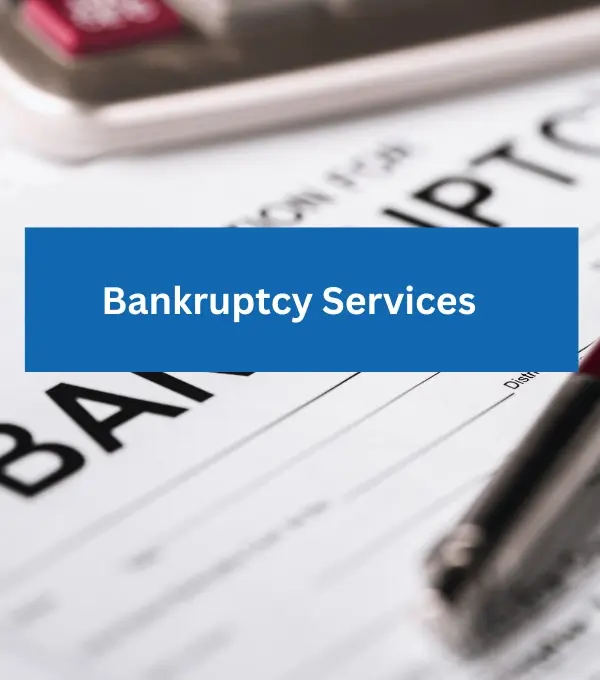Business liquidation is the official process of closing a company, selling its assets, and using the money to settle debts and obligations. In simple terms, it means winding up a business and legally ending its existence.
Liquidation can happen in two main ways:
- Voluntary liquidation: when business owners choose to close the company on their own.
- Compulsory (involuntary) liquidation: when the company is forced to close due to insolvency, court order, or regulatory action.
Understanding the causes of business liquidation in the UAE is important because it helps business owners identify early warning signs, take preventive steps, and ensure full compliance with UAE laws and free zone regulations. With proper planning and professional guidance, many companies can avoid liquidation or manage it smoothly when it becomes necessary.
Types of Business Liquidation in the UAE
Voluntary Liquidation
This occurs when the shareholders or directors decide to close the company. It may be due to strategic reasons, business restructuring, or when the company is no longer profitable. Voluntary liquidation usually involves hiring a licensed liquidator to manage the closure process and settle all financial obligations.
Compulsory (Involuntary) Liquidation
This happens when the company cannot pay its debts or faces legal action from creditors or authorities. A UAE court or regulatory body can order compulsory liquidation, especially in cases of bankruptcy, fraud, or prolonged non-compliance.
Major Causes of Business Liquidation in the UAE
Business liquidation can occur due to financial or non-financial reasons. Below are the most common causes faced by companies in the UAE.
Financial Causes (Insolvency-Related)
- Poor Financial Management
When a company fails to maintain proper financial planning such as budgeting, monitoring expenses, or managing cash flow it often faces liquidity problems.
Delayed payments from clients, rising expenses, and weak accounting systems can lead to inability to pay employees, suppliers, or creditors, eventually resulting in liquidation.
- Excessive Debt
Many businesses over-borrow or take loans with high interest rates, which become difficult to repay. When repayment obligations outweigh revenue, the company falls into a debt trap, leading to insolvency and forced closure.
- Economic Downturn or Market Instability
Economic recessions, reduced consumer demand, or global market disruptions (like the COVID-19 pandemic) can severely affect profitability. Companies in sectors like tourism, construction, or retail may face cash shortages, pushing them toward liquidation.
- Mismanagement and Poor Leadership
A lack of proper decision-making, poor investments, or ineffective leadership can harm business performance. When management fails to adapt to market changes or control costs, the company may suffer continuous losses, leading to closure.
- Legal Disputes or Penalties
Ongoing legal cases, fines from authorities, or regulatory penalties can drain financial resources. In severe cases, companies are forced into liquidation to settle judgments or compensate claimants.
Non-Financial Causes (Voluntary or Strategic Reasons)
- Business Restructuring or Group Merger
Sometimes, companies close voluntarily as part of a group consolidation, merger, or acquisition plan. Assets and operations may be transferred to another entity.
- Completion of a Project or Short-Term Contract
Some companies in construction, oil & gas, or events sectors are created for specific projects. Once the project is completed, they are liquidated as planned.
- Non-Renewal or Expiry of Trade License
Failure to renew a trade license or business permit can automatically trigger the liquidation process. Authorities may require the company to close and deregister to avoid fines or penalties.
- Shareholder or Partner Disputes
Disagreements among business partners or shareholders can make operations impossible. In such cases, the company may choose voluntary liquidation to divide assets and settle accounts fairly.
- Regulatory Non-Compliance or Inactivity
If a company fails to submit annual audits, tax filings, or maintain active operations, the Department of Economic Development (DED) or free zone authority (like DMCC or DIFC) may initiate liquidation.
Process for Liquidation in the UAE
The business liquidation process in the UAE involves several legal and administrative steps:
- Shareholder Resolution: The company’s shareholders formally agree to liquidate the business through a written resolution.
- Appointment of a Licensed Liquidator: A registered auditing firm or licensed liquidator is appointed to manage the closure process.
- Notification to Authorities: Notify relevant entities such as DET , Ministry of Economy , FTA (Federal Tax Authority) , and free zone authorities if applicable.
- Settlement of Debts and Obligations: All outstanding payments including employee dues, vendor invoices, and government fees must be cleared.
- Final Liquidation Report and Deregistration: The liquidator prepares a final report confirming that all obligations are settled. The company is then officially deregistered.
Also, remember each free zone (like DMCC , DIFC , ADGM , or JAFZA ) may have additional liquidation steps or documentation requirements.
When Insolvency Leads to Liquidation
Insolvency occurs when a business cannot pay its debts as they fall due, or when its liabilities exceed its assets.
Common signs of insolvency include:
- Constant cash flow shortages
- Regular delays in supplier payments
- Dependence on loans to cover operational costs
Under the UAE Bankruptcy Law, companies experiencing financial distress can apply for preventive composition or financial restructuring. This allows them to negotiate repayment plans with creditors and potentially avoid liquidation altogether.
Preventive Measures to Avoid Liquidation
Business owners can prevent liquidation by maintaining strong financial discipline and early intervention. Here’s how:
- Keep Accurate Financial Records: Regular audits and transparent bookkeeping help detect early warning signs.
- Monitor Cash Flow: Track income and expenses to manage liquidity effectively.
- Avoid Excessive Borrowing: Maintain a healthy debt-to-revenue ratio.
- Cut Unnecessary Costs: Review overheads and renegotiate supplier contracts when needed.
- Seek Professional Help Early: Consult accountants, auditors, or business advisors like Reyson Badger when financial difficulties arise early advice can save a company from closure.
Conclusion
In summary, business liquidation in the UAE can result from both financial challenges, such as debt, poor management, or market downturns, and non-financial reasons, including restructuring, disputes, or project completion. Understanding these causes helps business owners make informed and timely decisions, whether that means restructuring, seeking funding, or proceeding with a proper liquidation process. If liquidation becomes necessary, partnering with Reyson Badger ensures the process is handled professionally, in full compliance with UAE laws and regulations.
 The Federal Tax Authority (FTA) has announced that businesses must complete Corporate Tax registration within 90 days from the Date of Incorporation / MOA.
The Federal Tax Authority (FTA) has announced that businesses must complete Corporate Tax registration within 90 days from the Date of Incorporation / MOA.













